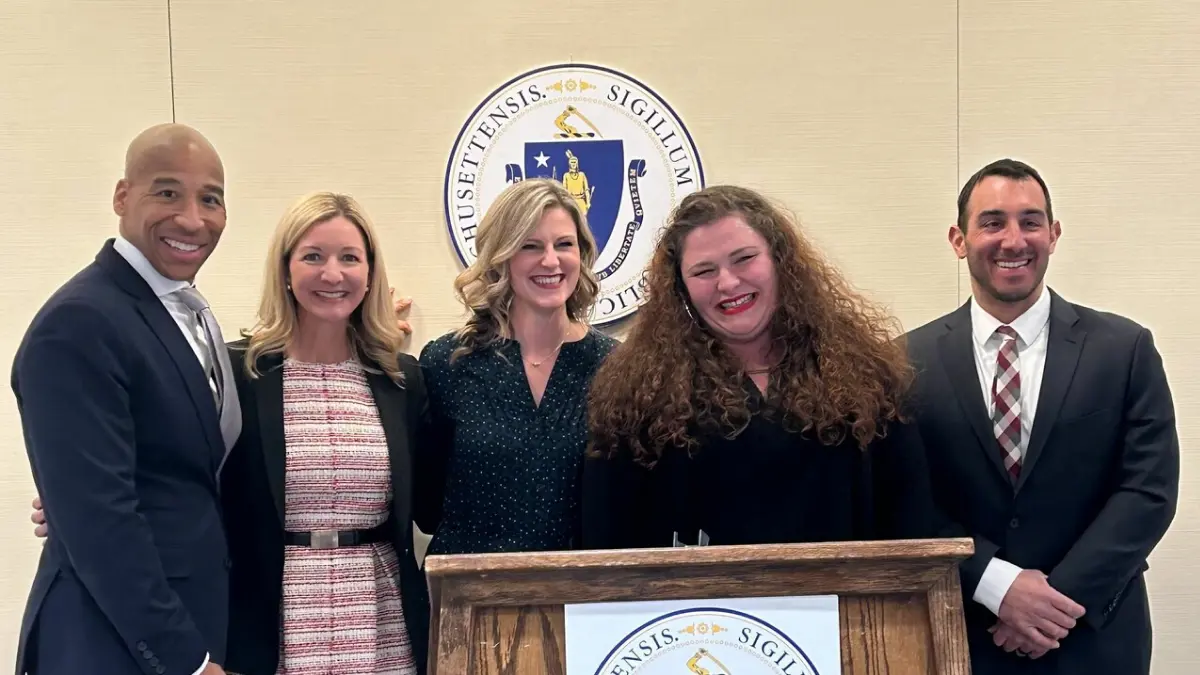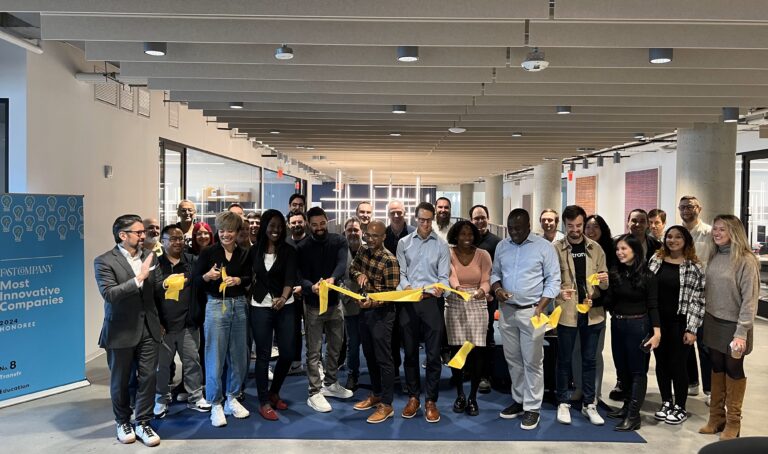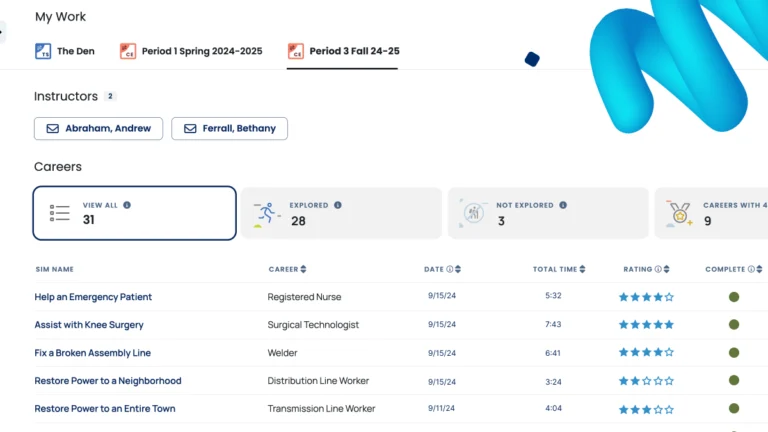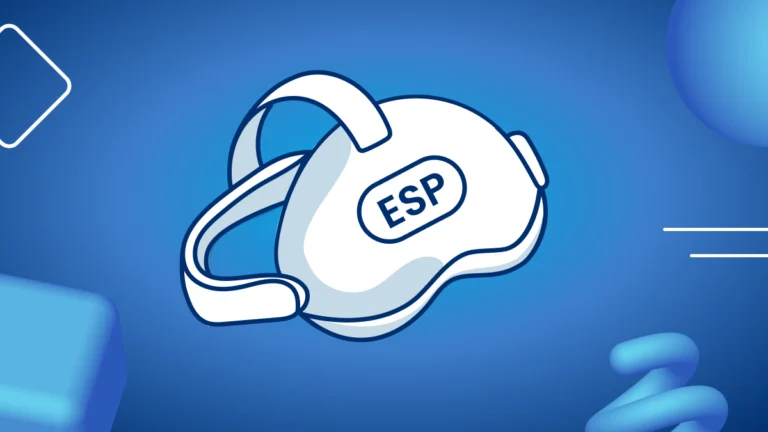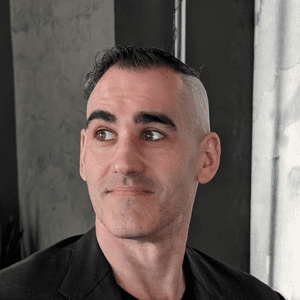Here at Transfr, we understand the importance of building networks between organizations and creating robust ecosystems of training and support for all people looking to get on their own unique pathways to career success — but especially for those who’ve been impacted by the criminal justice system. That’s why in February, thought leaders from Transfr, along with Reynolds Graves — President & CEO of The Graves Group — and Massachusetts State Senator Liz Miranda assembled at the Massachusetts State Legislature to meet with key stakeholders to discuss the importance of investing in workforce development opportunities for justice-impacted people prior to returning home, which helps to reduce recidivism rates and create more prosperous communities across the Commonwealth.
“Centering equity and justice is super important,” says State Senator Miranda. “You want to deliver on multiple intersectional issues when you’re in the legislature.”
The Transfr team, including Kate Kimmer — Director of Special Populations Initiatives, presented key findings from other criminal-justice related partners who are already using VR alongside a suite of support services to improve the lives of those most in need of a second chance.
“Many people who are experiencing incarceration have already experienced trauma and poverty,” says Kate. “Many of them feel destined to this life because they come from communities and families that have had the same experiences with the same outcomes. As a company, we can address these challenges with a collective impact model. As a community, we can connect, empower, and inspire real change.”
The opportunity: Reduce recidivism, increase employment
According to PrisonPolicy.org, as many as two million people are incarcerated in the USA at any given time, with up to 60,000 of them being under the age of 18. While these numbers are sobering, they represent an amazing opportunity to bring hope and help to a group in great need of both.
“Transfr works in a couple main ways to help increase opportunities for justice-impacted people,” Kate explains. “First via career exploration — users get quick day-in-the-life glimpses into a range of well-paying, high-growth careers. Then, when they choose a career, they can safely train for it whether in-facility or not. Simulations don’t require dangerous tools, expensive equipment, or consumable materials.”
Simulations are just one part of the overall ecosystem that Transfr fits into in order to create more opportunities and help formerly-incarcerated people succeed back in their communities. Partnering with other organizations to provide counseling and ongoing support is also vital.
“Having a job is a key way to reduce recidivism,” Kate explains. “And having the right skills is a necessary prerequisite for employment. But something else that goes along with these two elements is support — whether that’s with substance use issues or just adjusting to their new lives post-incarceration.”
This stance is echoed by other organizations in the space, including Reynolds Graves, who had this to say:
“We’re all here together to improve the lives of residents in the Commonwealth to enter the workforce and contribute to society with dignity and respect through a well paying job. Transfr is aware of the current climate here in the Commonwealth… and continues to support young people and citizens returning from incarceration.”
Towards a brighter future for justice-impacted people
Building more robust pathways towards career success for justice-impacted people is a complex process, which is why Transfr and other partner organizations combine their efforts and seek to integrate employers into these networks as well. Employer attitudes regarding employing formerly-incarcerated people are changing, as are second-chance laws. Integrating employers into these support networks helps streamline the exploration-training-employment pathway and can prevent loss of momentum — and loss of hope.
You can’t just work on transportation and not work on housing. You can’t just work on housing without talking about workforce development. And you can’t talk about workforce development without talking about education,” says State Senator Miranda. “And I’m a supporter of Transfr, because… they center returning citizens, young people, women, and POC [people of color]… We need partners like Transfr so that we can lead the way in innovative workforce development.”
Transfr partners across the country are helping create education-training-employment ecosystems that are delivering amazing results. These networks operate by helping bridge gaps in job awareness, training, and hiring for justice-impacted youth and adults, resulting in increased job retention. Thanks to VR training, individuals have a clear idea of what they can expect in a real job environment, what skills they’ll need to be successful, and more.
“People who have experienced incarceration are just that – people,” Kate says. “They are fathers, educators, artists, engineers, entrepreneurs, and daughters. 95% of incarcerated people will come home to our communities. Many of them don’t feel equipped to break the cycle of incarceration. But we can change that together. Families, communities, and employers all win when we invest in the untapped talent behind the walls of correctional facilities.”
